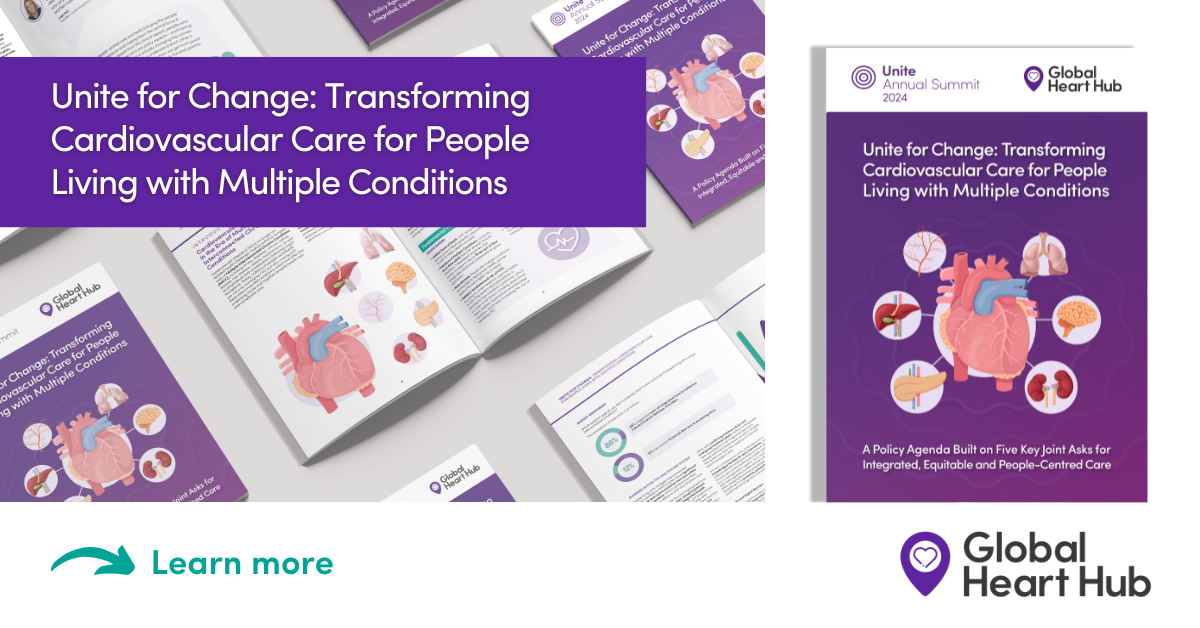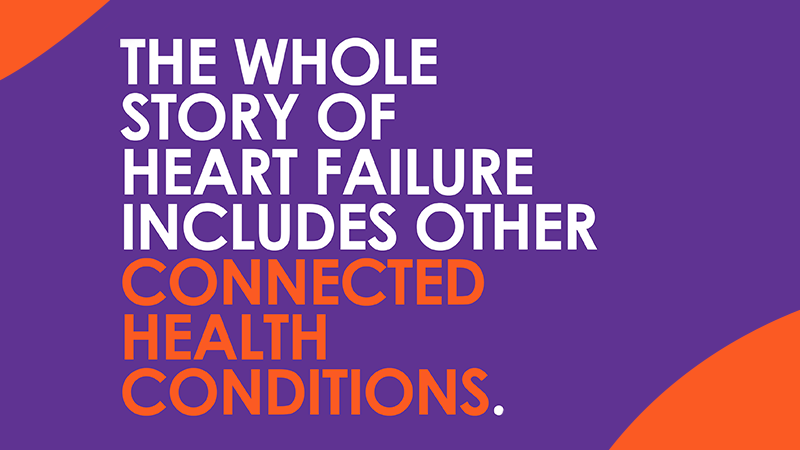COVID-19: Advice for individuals living with Heart Failure
March 22nd 2020:
Patient organisations working with those living with Heart Failure (both patients and carers) are inundated with queries on COVID-19 (Coronavirus).
The Global Heart Hub has consulted with medical experts and is pleased to offer this information which can be locally translated by patient organisations and posted on their respective communication channels.
Covid-19 presents the world with an unprecedented public health challenge. Its rapid spread has caused significant alarm and disruption across the globe. Understandably, those living with heart disease are anxious and concerned.
It is well established that many virus infections can affect the heart, and experts suspect that coronavirus is no different. Viruses are known to induce inflammation of the myocardium. While in a healthy patient this may not lead to an adverse outcome, the situation for those living with coronary artery disease and heart failure is different. Evidence suggests that if these individuals become infected with coronavirus they are at greater risk of adverse cardiac events and the outcomes may be poor.
COVID-19 is a new illness that can affect your lungs and airways. It’s caused by a virus called coronavirus. With the number of cases around the world increasing on a daily basis, hospitals are experiencing an unprecedented increase in patient admissions. Consequently, some hospitals are cancelling clinics and limiting non-urgent activity to urgent and emergency cases so as to reduce the strain on staffing and beds.
It is important to remember that hospitals will continue to treat heart patients, but the current pressures may result in delays, cancellations of appointments and disruption of services. The decisions on who will be treated will be based on clinical need, with those in most need of treatment being prioritised.
How do I reduce my risk of contracting the COVID-19 Virus:
Currently, there is no vaccine to prevent COVID-19 and the best way to prevent illness is to avoid being exposed to this virus. For all heart patients, prevention is key. While it is normal to feel anxious about how this condition might affect you, if you are not exposed to the virus you are at no greater risk of developing COVID-19 than anyone else. However, if you do contract the virus you have a higher chance of developing complications. So, those living with heart failure need to take every precaution.
Coronavirus is spread by droplet infection – coughing and sneezing or by close contact with someone who has the virus. As this is a new illness, we do not know how easily the virus spreads from person to person. Spread is most likely from those who have symptoms. It is very important therefore to limit close contact.
Key recommendations are:
- Immediately stop all non-essential contact with others. This is particularly important for people over the age of 70 years of age. Do not shake hands – try and keep a distance of 2 meters (6.5 feet) between you and others.
- Work from home if and where possible.
- Stop all unnecessary travel.
- Avoid crowded places, especially indoor venues.
- Limit your children’s interactions with other children and ensure they do not have contact with older people (e.g. grandparents).
- Wash your hands regularly with soap and hot water – do this for at least 20 seconds at each wash.
- Use hand sanitiser gel if soap and water are not available.
- When you cough or sneeze, cover your mouth and nose with a tissue or your sleeve (not your hands).
- Immediately after use, put your used tissues in the refuse bin and then wash your hands.
- Avoid close contact with people who are unwell.
- Do not touch your eyes, nose or mouth if your hands are not clean.
- Do not share objects that touch your mouth, for example bottles or cups.
For those living with Heart Failure:
- Take all your medicines as advised by your doctor or nurse.
- Do you best to follow all your medical advice on how to keep your condition well controlled.
- Continue to self-monitor your condition and record your weight on a daily basis (first thing after you get out of bed in the morning).
- Stay in regular contact with family, friends or neighbours as you may need to ask for help if you become sick.
- Maintain a healthy diet – unless you have been advised to adhere to a specially prescribed diet, you should continue to try and eat a wide variety of foods that are rich in vitamins, minerals, fibre and other essential nutrients.
For Family and Caregivers:
- Know what medications are prescribed and make sure supplies are secure.
- Watch for new symptoms.
- Prepare a plan to make sure food and other supplies are available when needed.
- Consider options and have a plan for what would happen if you become ill.
What are the symptoms of COVID-19?
The main symptoms to watch out for are:
- a cough
- a high temperature
- shortness of breath
- Breathing difficulties
Other symptoms are fatigue, headaches, sore throat, aches and pains.
Remember these symptoms do not necessarily mean you have the illness. The symptoms are similar to other illnesses that are much more common, such as cold and flu.
If you are experiencing any of these symptoms and feel you need medical help, you should follow the guidelines issued by your health authority on how best to seek medical help.
What should I do if I experience gradual or persistent worsening symptoms of Heart Failure, such as my weight increasing or my legs swelling?
Self-monitoring of your condition on a daily basis is very important. It is equally important that you take your daily medicines as prescribed by your doctor.
If you experience any of the following worsening of symptoms, you should contact your GP, Heart Failure Nurse or your local Heart Failure Clinic for advice and review of your medication.
Worsening symptoms to look out for:
- Weight increase greater than 2kg.
- Increased swelling in the legs or abdomen.
- Increased shortness of breath on exertion, lying down or in bed at night.
If you have very sudden or very severe symptoms call for an ambulance so that you can be taken to hospital for treatment as soon as possible.
Stay Calm!
It is perfectly understandable that people may be feeling anxious or concerned about what might happen to them or their loved ones over the coming months. However, we must remind ourselves that this crisis will end. Only seek information from reliable sources – there is a huge amount of ‘fake news’ and false rumors which do nothing more than cause unnecessary anxiety and distress.
Already many heart patients are slow to respond to changes in their health or they are dismissing new symptoms because they do not wish to burden their doctor or local hospital. Despite the Covid-19 crisis, doctors and emergency rooms are still there to help heart patients so do not ignore worrying symptoms or delay in contacting them if you are unwell. Keep up to date with your local health information notices on how best to contact your GP or Heart Failure Nurse. The Heart Failure Patient Council of the Global Heart Hub are being advised by medical and public health experts and we will keep you updated on any changes in information that could affect those living with Heart Failure.





